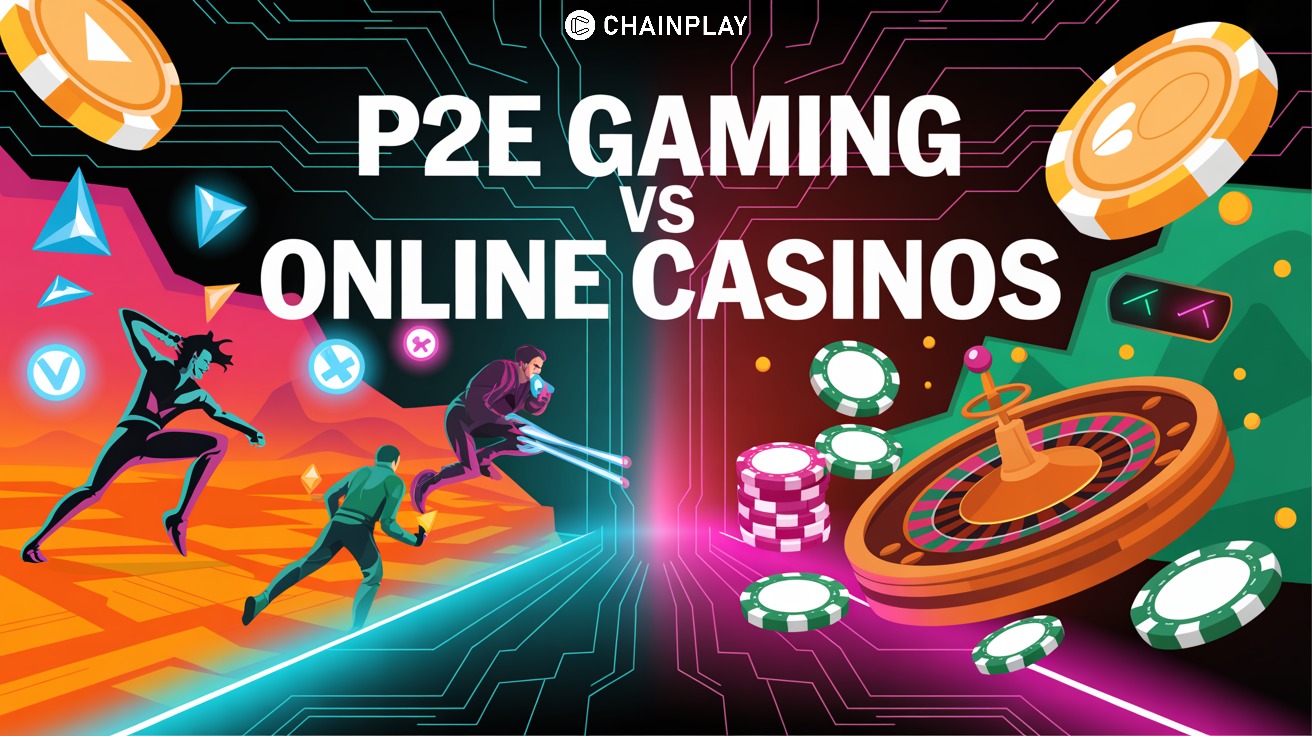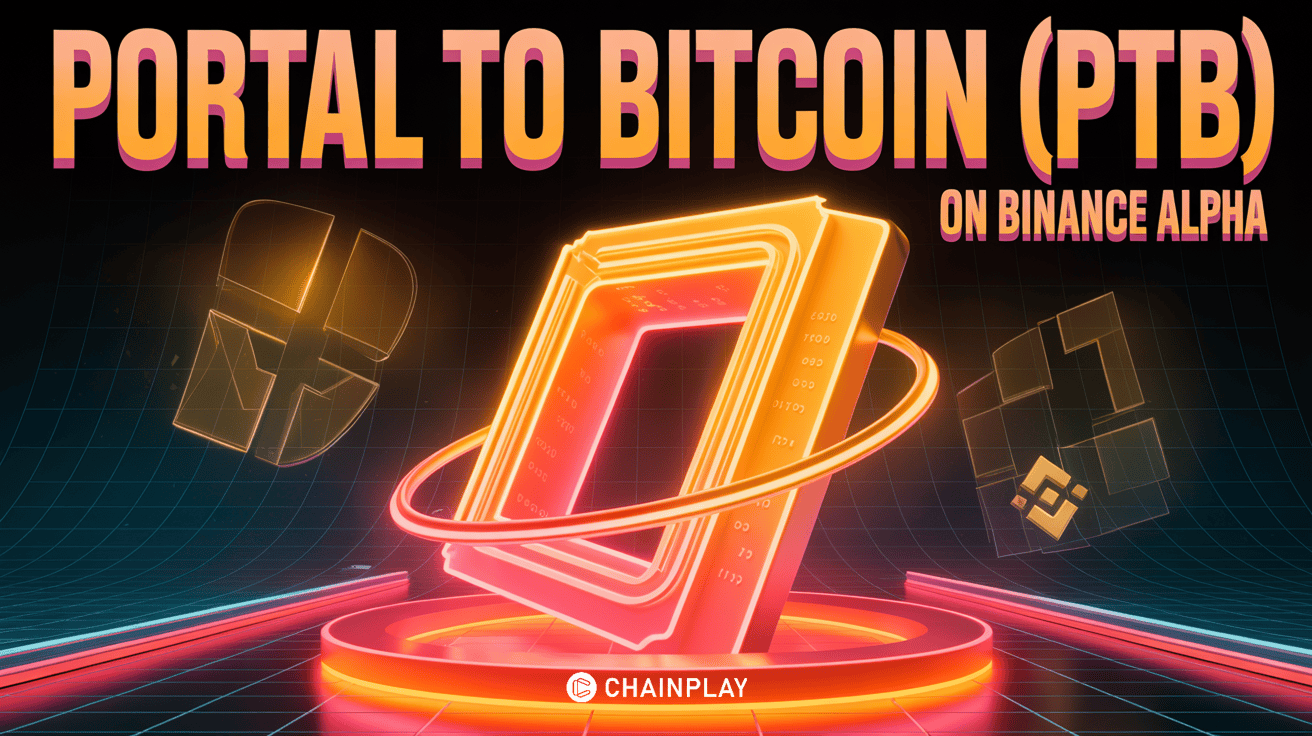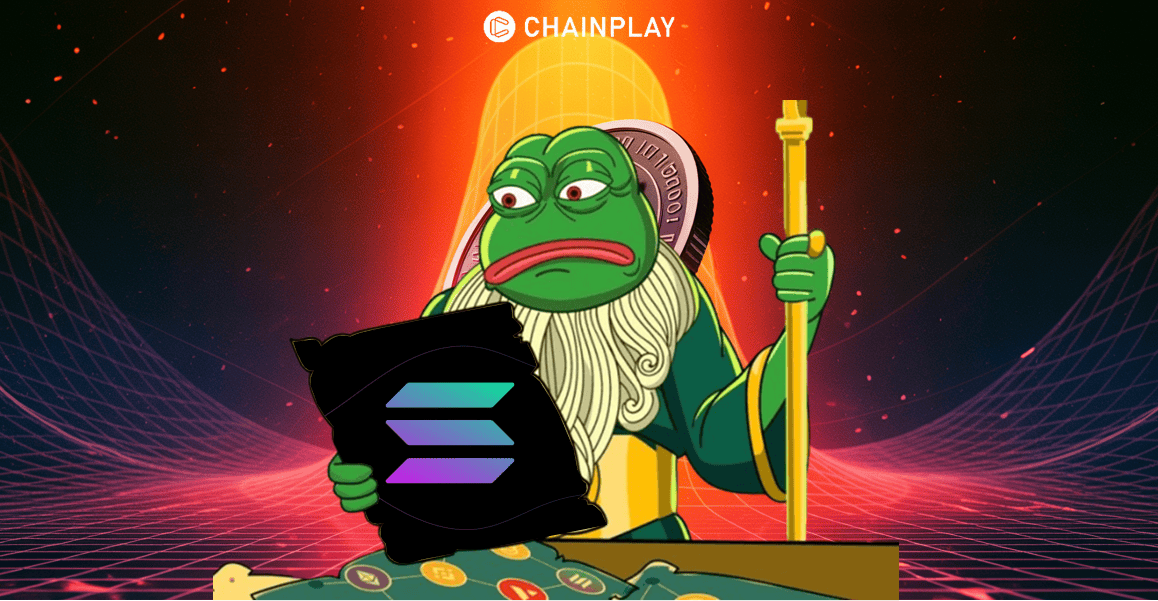News
7 Best Play-to-Earn Games in 2025 and How They Differ from Online Casinos
ChainPlay
•
21 days ago
Share :

In 2025, play-to-earn (P2E) gaming is gaining traction. This style of play relies on blockchain integration, player-controlled economies, and digital asset ownership. They are their own ecosystems where players can earn crypto, NFTs, or real-world currency through skill and time. Unlike online casinos, where outcomes are based on chance and tightly regulated odds, P2E games reward effort, strategy, and participation.
Let’s now look at the standout P2E titles making waves in 2025 and how they compare to the online casino experience.
1. Big Time
Big Time remains a top contender in the action-RPG space. It was developed by former AAA veterans and combines time-travel mechanics with real-time combat. Players earn cosmetics and loot that can be minted into NFTs and sold on marketplaces. Unlike casino games, where outcomes are purely luck-based, success in Big Time hinges on teamwork, grinding through dungeons, and navigating an in-game economy.
It’s worth noting the difference in reward structure. While Big Time gives players a shot at earning through gameplay and in-game assets, online casinos depend on fixed-odds mechanics and quick wagering loops. Some users may prefer the structured randomness and fast payouts of gambling platforms, especially those drawn in by bonus schemes. For example, there are dozens of casino offers available in the US, ranging from no-deposit promos to cashback deals. The key difference is control. P2E games reward effort and time, while casinos reward risk.
2. Pixels
What started as a simple farming simulator on Ronin has evolved into a bustling social world. In Pixels, users build land, harvest crops, complete quests, and earn $PIXEL tokens. Community-driven events and DAO voting keep players engaged in world development. Players can use their $PIXEL tokens in community voting or to make in-game upgrades, but can also trade these tokens at an exchange for other cryptocurrencies or even for cash.
This model rewards consistency. Contrast that with an online casino, where even skilled play involves a degree of unpredictability.
3. Illuvium: Arena
Tactical, turn-based auto-battlers are having a moment, and Illuvium: Arena leads the charge. With its blend of strategy and blockchain tech, players assemble teams of NFT-based creatures and battle. ILV token rewards are possible, especially through tournaments or ecosystem staking, but not guaranteed with every battle. These tokens can be used in the game or traded on major exchanges.
4. Star Atlas
Part exploration, part political simulator, Star Atlas is an MMO set in deep space. Players build ships, manage resources, and engage in governance, with a lot at stake. Assets can be incredibly valuable, with ships, land, and resources being NFTs with real-world value. Some ships have even been sold for thousands of dollars. This high-level play mimics strategic planning more than any form of gambling and offers a very different kind of engagement.
5. Gods Unchained
This free-to-play card battler remains one of the most accessible P2E games on the market. Players earn card packs by winning matches and taking part in seasonal events. Cards can be fused into NFTs and sold or traded. Here, knowledge of mechanics and opponent psychology is far more important than chance. Compare that to a hand of blackjack, where every decision is still bound by a house edge.
6. Shrapnel
First-person shooters aren’t typically associated with blockchain, but Shrapnel is changing that. It rewards players for their shooting skills as well as for creating and minting in-game assets. Developers have put a strong emphasis on modding and community content, meaning income can be generated without even playing, just designing.
7. Phantom Galaxies
Phantom Galaxies appeals to fans of mech combat and space opera. It has cinematic missions and open-world exploration where NFTs unlock new ships, weapons, and abilities. Earnings come through mission success and resource collection by trading NFTs on external markets, not blind spins or bets. The value generated here is from interaction and participation, not from hitting a jackpot.
P2E vs. Online Casinos: What’s the Main Difference?
A person holding an NFT and an Ethereum token - Free stock image.
Play-to-earn games focus on strategy and steady progression, rewarding players who make smart decisions over time. While casinos also feature skill elements in games like poker or blackjack, many rely on chance-based mechanics, offering a different kind of play experience.
That’s not to say one is better than the other. Understanding how these experiences diverge can help players choose where to invest their time and money.
Share this article
#Other
Latest News

Portal To Bitcoin (PTB) To Launch Exclusively on Binance
4 hours ago

Base On-Chain Sports Prediction Game, Football.fun,
7 hours ago

Pepeto Price Prediction, Can This Ethereum Memecoin
7 hours ago

Why are Whales Choosing to invest in this Memecoin,
8 hours ago

Best Meme Coins to Buy Now Guide: Pepeto Leads the
9 hours ago
Top Trending Games
Related articles

Pepeto, an Ethereum memecoin on mainnet, is winning attention because it mixes meme energy with real products, a zero fee DEX, a native bridge, and staking.
ChainPlay
•
7 hours ago

Football.fun, a new on-chain fantasy prediction football game, has gone viral after its launch on the Base platform, gaining massive attention from users. Football.fun has caught the attention of football and crypto enthusiasts for its innovative fusion of football fandom, player ownership, and profitable gameplay.
ChainPlay
•
7 hours ago

Binance Wallet has announced that on September 3, Binance Alpha will be the first platform to support Portal To Bitcoin (PTB), a trust-minimized protocol designed for fast, secure atomic swaps between Bitcoin and other blockchain assets.
ChainPlay
•
4 hours ago



